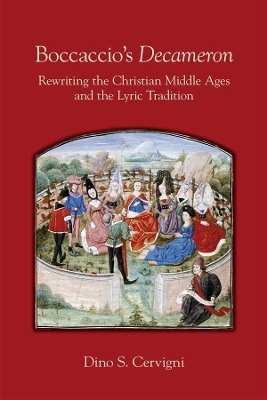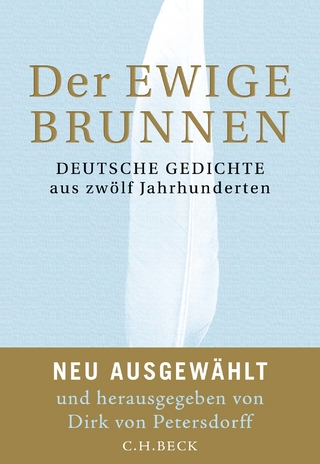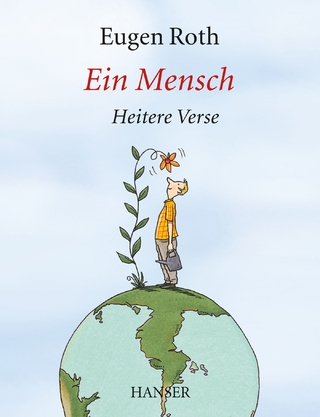
Boccaccio`s "Decameron" – Rewriting the Christian Middle Ages and the Lyric Tradition
Arizona Center for Medieval & Renaissance Studies,US (Verlag)
978-0-86698-606-9 (ISBN)
- Titel nicht im Sortiment
- Artikel merken
Still relevant to this day, The Decameron offers a notable description of the bubonic plague of 1348 which devastated Western Europe—drawing striking parallels with the current global pandemic. Furthermore, Boccaccio’s concluding message applies to all of us in the present moment, plunged as we are into a world of intellectual and ethical chaos, exhorting us to practice forgiveness, compassion, tolerance, mutual acceptance, and generous open-mindedness. No other book on The Decameron offers such a relevant, up-to-date reading of the classic work.
Dino S. Cervigni is professor emeritus of Romance languages and comparative literature at the University of North Carolina at Chapel Hill. He is the founder and editor-in-chief of Annali d’italianistica and is the author of numerous books, including Dante’s Poetry of Dreams.
Acknowledgments
Notes on Citations of the Decameron
Introduction
1. The All-Encompassing Discourse: Topoi of the Poet, Women, and Critics
2. The Brigata’s Overarching Tale: Rewriting the Christian Middle Ages
3. The Decameron’s Ballads and Emilia’s Song: “I have such desire for my own beauty” (“Io son sì vaga della mia bellezza.” Dec. 1)
4. Pampínea’s “What woman will sing if I myself do not?” (Qual donna canterà, s’i’non cant’io?” Dec. 2)
5. Lauretta’s “No woman without consolation” (Niuna sconsolata.” Dec. 3)
6. Filostrato’s Desperate Song: “Weeping, I show” (“Lagrimando dimostro.” Dec. 4)
7. Dioneo in Love’s Chains: The Erotic Storyteller vs. the Pathetic Lover
8. Love, War, and Servitude in Elissa’s (Dec. 6)
9. Filomena’s Unhappy Love: “Ah, my wretched life!” (“Deh lassa la mia vita!” Dec. 7)
10. Panfilo’s Erotic Song: “So great, O Love, is the good” (“Tanto è, Amore, il bene.” Dec. 8)
11. Neifile’s Distant Beloved: “A young girl am I” (“Io mi son giovinetta.” Dec. 9)
12. Making Amends and Behaving Magnificently: Dec. 10’s Secular Redemption
13. Fiammetta’s Desperate Ballad (Dec. 10): Concluding All Lyric Singing
14. The Decameron’s Precarious Centers, the Author’s Story, His Open-ended Conclusion
Appendix: The Narrator as Moral Commentator: Humor, Humorous Tales, and Humorous Storytellers
Works Cited & Bibliography
Index of Important Matters
Index of Names
| Erscheinungsdatum | 09.02.2021 |
|---|---|
| Verlagsort | Arizona |
| Sprache | englisch |
| Maße | 153 x 229 mm |
| Gewicht | 770 g |
| Themenwelt | Literatur ► Lyrik / Dramatik ► Lyrik / Gedichte |
| Geisteswissenschaften ► Sprach- / Literaturwissenschaft ► Anglistik / Amerikanistik | |
| Geisteswissenschaften ► Sprach- / Literaturwissenschaft ► Literaturwissenschaft | |
| Sozialwissenschaften ► Pädagogik | |
| ISBN-10 | 0-86698-606-5 / 0866986065 |
| ISBN-13 | 978-0-86698-606-9 / 9780866986069 |
| Zustand | Neuware |
| Haben Sie eine Frage zum Produkt? |
aus dem Bereich


